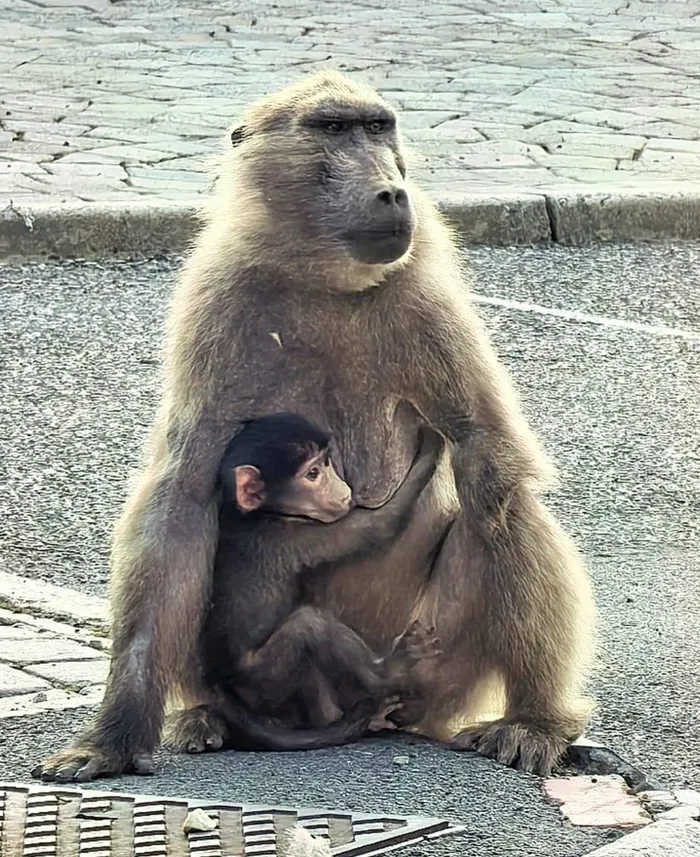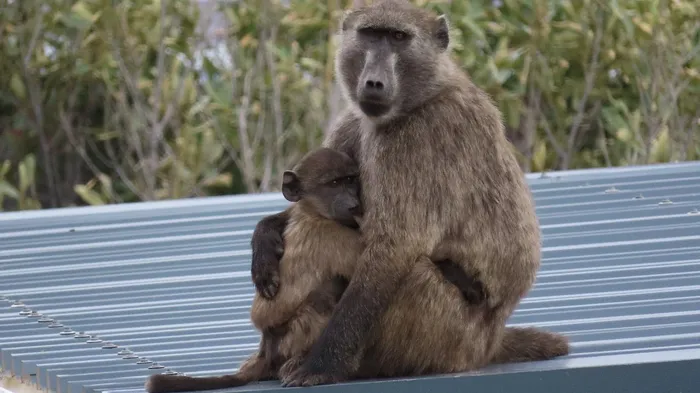Cape Peninsula conservationists criticise proposed removal of baboons

A review process is under way for the proposed removal of several baboon troops from the Cape Peninsula, prompting public concern and calls for further consultation.
Image: Barry Wood
The Cape Peninsula Civil Conservation (CPCC) has strongly criticised the planned removal - and possible killing - of up to 120 baboons from the Cape Peninsula, calling it “deeply shocking."
The CPCC expressed cocern about ethical, social, and ecological consequences.
This follows a recent announcement by the Cape Peninsula Baboon Management Joint Task Team (CPBMJTT), which includes SANParks, CapeNature and the City of Cape Town, that five splinter baboon troops could be removed as part of their updated management plan, ("Cape Peninsula task team reveals innovative strategies for baboon management," Echo).
The CPBMJTT said options for removal include translocation, relocation to sanctuaries, or euthanasia.
CPCC chairperson Lynda Silk said the proposed action would affect around a quarter of the managed baboon population, the Cape Point troops, and has left conservationists and the public reeling.
“Even though we expected an announcement like this, our community is in shock. There is so much to consider - alternatives, impacts - we need time to investigate and reflect.”

The Creamies, referred to as the Da Gama 4, are up for removal.
Image: Debra Coull
The CPCC questioned how entire troops, some with over 40 individuals, could be removed or killed without causing major distress to the animals and surrounding communities.
“Baboons are smart and hard to catch. Even darting one baboon can take hours. Imagine trying to capture a whole troop,” Ms Silk said.
They also warned that the situation could spark growing unrest, with some people potentially breaking the law either to harm or protect the baboons.
“As the authorities appear to give up on these animals, we expect tensions to rise—and conflicts within communities to intensify,” she said.
The group also expressed concern for the well-being and job security of baboon rangers, many of whom have been under strain for the past two years and are now facing further uncertainty.
The CPCC criticised what they called a shift toward a “hardline” approach to baboon management, including the increased use of fencing to separate people and wildlife, and a general move toward urban development that does not account for the needs of wild animals living at the urban edge.
While the CPBMJTT stated that the public can still provide feedback and that final decisions have not been made, the CPCC said that the advisory group had no involvement in approving the removals.
They also raised alarm over proposed changes to how dispersing male baboons will be treated, saying that if they fail to integrate into a new troop quickly, they may be killed.
The CPCC is urging concerned residents to submit their feedback either via email to the CPBMJTT (cpbmjtt@capenature.co.za) or through the CPCC directly at info@cpcc.org.za.
Related Topics: